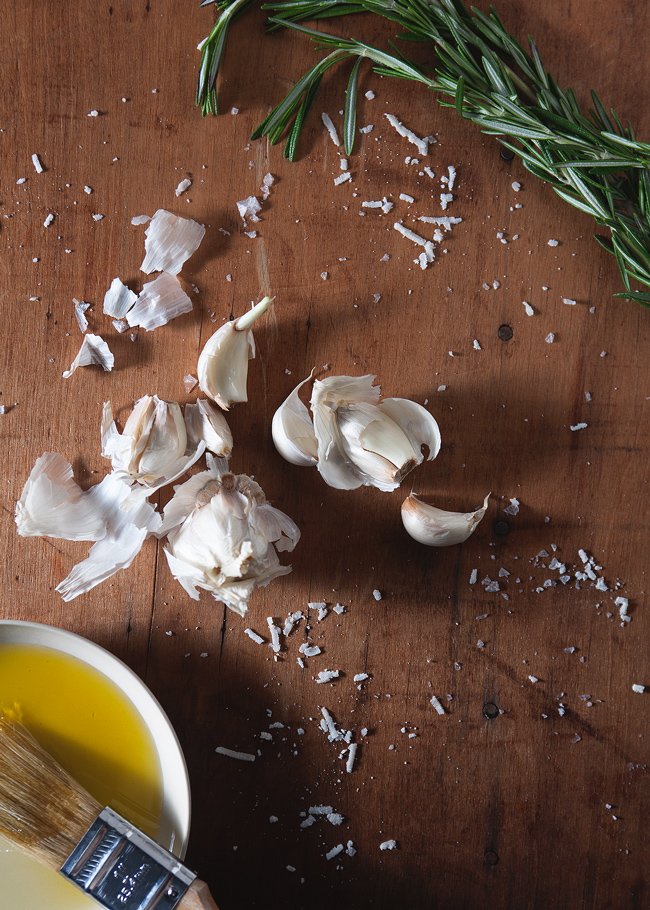Is Cauliflower Acidic? Benefits for Acid Reflux Explained
Cauliflower is a widely enjoyed vegetable known for its versatility in cooking and a wide range of health benefits. It is often celebrated for its high nutrient content and low calorie profile. However, when it comes to managing digestive conditions such as acid reflux or other gastrointestinal issues, understanding the acidity of different foods becomes crucial. Many people with acid reflux must pay close attention to the pH levels of what they eat.
This article will explore whether cauliflower is acidic, its potential benefits for those suffering from acid reflux, and provide useful insights on its role in a balanced diet. We will also discuss which other vegetables are ideal or not ideal for those dealing with acidity and heartburn.
Is Cauliflower Acidic?
Understanding Acidity in Foods
Acidity in foods refers to the pH level of the food, with acidic foods having a pH lower than 7 and alkaline foods having a pH greater than 7. Foods with lower pH levels can increase stomach acid production, which is a concern for people dealing with acid reflux, heartburn, or other gastrointestinal issues.
Cauliflower’s pH Level
Cauliflower is considered a mildly alkaline food, with a pH level that ranges between 6.0 and 7.0. This makes it relatively neutral or slightly alkaline compared to many other vegetables. In fact, its pH level suggests that cauliflower is not acidic, but rather falls closer to the neutral or alkaline side of the pH scale.
Is Cauliflower Acidic?
The answer is no—cauliflower is not acidic. Its low pH level indicates that it is unlikely to contribute to acidity in the stomach or trigger symptoms of acid reflux. In fact, many individuals with acid reflux find cauliflower to be gentle on the stomach, thanks to its alkaline properties and the ability to soothe irritation.
Is Cauliflower Good for Acid Reflux?
Digestive Benefits of Cauliflower
For individuals with acid reflux, managing what they eat is essential to minimizing discomfort. Cauliflower, being low in acid, can help balance stomach pH and ease digestive discomfort. The vegetable contains fiber and other nutrients that promote healthy digestion, making it a safe choice for those who are cautious about acid levels in their diet.
How Cauliflower Soothes the Stomach
The low acidity of cauliflower may help reduce the likelihood of acid reflux episodes. Foods that are less acidic tend to be less irritating to the esophagus and stomach lining, which is important for people with conditions like GERD (Gastroesophageal Reflux Disease). Cauliflower is also rich in antioxidants, which can aid in reducing inflammation in the digestive tract.
Is Cauliflower Good for Acid Reflux?
Yes, cauliflower is considered good for people with acid reflux. Its mild, non-acidic nature makes it a suitable vegetable for those looking to avoid triggers that can worsen heartburn or acid reflux symptoms.
Is Cauliflower Acidic or Alkaline?
Cauliflower’s Alkaline Properties
As mentioned earlier, cauliflower has an alkaline pH, making it more suitable for those who are trying to reduce acidity in their body. Alkaline foods help to neutralize the stomach’s acid levels and can promote a healthier pH balance in the body overall. Consuming foods that are more alkaline may assist in managing conditions like acid reflux, as they counteract excess acid production.
Comparing Cauliflower to Other Vegetables
To better understand cauliflower’s place in a diet focused on acidity control, it’s helpful to compare it to other common vegetables:
- Spinach: Alkaline
- Bell Peppers: Alkaline
- Tomatoes: Acidic
- Onions: Acidic
Cauliflower ranks among the more alkaline vegetables, which makes it a solid choice for those aiming to balance the pH in their digestive system.
Is Cauliflower Acidic or Alkaline?
Cauliflower is alkaline, which is beneficial for those looking to maintain a neutral or slightly alkaline pH in their diet.
Which Vegetables Are Not Good for Acidity?
Vegetables to Avoid with High Acidity
Certain vegetables are considered more acidic and can trigger symptoms of acid reflux or heartburn in sensitive individuals. These include:
- Tomatoes: Due to their high natural acidity, tomatoes and tomato-based products can increase stomach acid.
- Onions: Often a trigger for heartburn and indigestion, especially when eaten raw.
- Garlic: While not technically acidic, garlic can cause discomfort for people with sensitive digestive systems.
Cauliflower’s Role in Preventing Acidity
Cauliflower, in contrast to the vegetables listed above, does not irritate the stomach lining or esophagus. This makes it a safer option for people who suffer from acid reflux or other forms of gastrointestinal discomfort.
Which Vegetables Are Very Acidic?
Highly Acidic Vegetables to Watch Out For
Several vegetables have a naturally high acidic content, which can exacerbate symptoms of acid reflux. These include:
- Tomatoes: Known for their high acidity, tomatoes often trigger heartburn or indigestion.
- Spinach: Despite its many health benefits, spinach can be slightly acidic and might irritate those with sensitive stomachs.
- Bell Peppers: While typically sweet, they can be acidic and cause discomfort for some people.
These vegetables should be consumed with caution, especially by those who are managing acidity-related conditions like GERD.
Cauliflower and GERD: Insights from Reddit
User Experiences and Discussions About Cauliflower and GERD
Reddit is a platform where users often share personal experiences related to health and diet. Discussions about cauliflower and GERD (Gastroesophageal Reflux Disease) are frequent, with many people offering their insights into how this vegetable affects their digestive health. In general, cauliflower is considered safe by most users with GERD, with many sharing that it doesn’t worsen their symptoms. However, some users with more sensitive stomachs note that cauliflower, particularly when eaten in larger amounts, can cause bloating or gas. These symptoms are more likely due to the vegetable’s fiber content rather than its acidity.
Does Cauliflower Trigger GERD Symptoms?
The consensus on Reddit is that cauliflower is unlikely to trigger GERD symptoms for most individuals. Its alkaline nature means it is less likely to increase stomach acid or irritate the esophagus. That said, some individuals may still experience discomfort due to the vegetable’s high fiber content, which can lead to bloating or gas. For those with sensitive digestive systems, it may be helpful to cook cauliflower thoroughly, as this can make it easier to digest and reduce any potential discomfort.
Broccoli vs. Cauliflower: Which Is Better for Acid Reflux?
Comparing the Acidity Levels of Broccoli and Cauliflower
Both broccoli and cauliflower are considered safe for people with acid reflux because they are low-acid vegetables. However, when comparing their pH levels:
- Cauliflower has a pH level ranging from 6.0 to 7.0, which makes it mildly alkaline.
- Broccoli, on the other hand, has a slightly higher pH, ranging from 6.3 to 7.0, placing it a bit more on the alkaline side than cauliflower.
Both vegetables can be beneficial for acid reflux sufferers, but broccoli’s slightly higher alkaline nature may provide an added benefit in balancing stomach pH levels.
Is Broccoli Acidic or Alkaline?
Broccoli is alkaline, much like cauliflower, which means it helps neutralize stomach acid and reduce the symptoms of acid reflux. Its higher pH compared to cauliflower could make it a better option for those seeking even more alkaline foods to soothe their digestive system.
How Both Vegetables Interact with Acid Reflux
Both cauliflower and broccoli can support individuals with acid reflux, as they both help neutralize stomach acid. However, broccoli’s more alkaline properties may make it a slightly better choice for managing acid reflux. Ultimately, both vegetables are safe and beneficial for acid reflux, so the choice between them may come down to personal preference or tolerance.
Best Alkaline Foods for Acid Reflux
Foods That Neutralize Stomach Acid and Support Alkalinity
For those dealing with acid reflux, incorporating alkaline foods into the diet can help neutralize stomach acid and reduce discomfort. Alkaline foods help balance the body’s pH levels, which in turn can minimize acid production in the stomach.
Top 5 Alkaline Foods for Acid Reflux
- Cauliflower: Cauliflower is an excellent choice for acid reflux sufferers due to its low acidity and high alkaline properties. It helps soothe the stomach and reduce acid production.
- Bananas: Bananas are naturally alkaline and can coat the stomach, providing relief from heartburn.
- Melons: Watermelon and cantaloupe are both alkaline and have a high water content, helping to flush out excess acid.
- Oatmeal: Oatmeal is not only alkaline but also absorbs stomach acid, making it a great option for breakfast or a light meal.
- Leafy Greens: Vegetables like spinach, kale, and lettuce are rich in alkaline minerals, which help balance the pH of the body and reduce acid reflux symptoms.
Incorporating these foods into your diet can help maintain a balanced stomach pH and reduce the occurrence of acid reflux.
How to Relieve Stomach Pain from Cauliflower
Tips and Remedies for Reducing Stomach Pain After Eating Cauliflower
While cauliflower is generally well-tolerated, some individuals might experience discomfort due to its fiber content or other digestive factors. Here are a few tips to relieve any stomach pain after eating cauliflower:
- Drink Water: Drinking water can help flush out excess gas and alleviate bloating.
- Take a Walk: Gentle movement can help promote digestion and relieve discomfort.
- Use Ginger: Ginger has natural anti-inflammatory properties and can help soothe the stomach. Ginger tea or even a small piece of fresh ginger can aid digestion.
- Avoid Overeating: Eating too much cauliflower in one sitting can sometimes cause bloating or gas. Smaller portions may help alleviate discomfort.
Cooking Methods to Reduce Digestive Discomfort
How cauliflower is prepared can impact its digestibility. Cooking cauliflower makes it easier to digest, as it softens the fibers. Here are a few cooking methods that can help reduce digestive discomfort:
- Steaming: Steaming cauliflower helps soften its fibers and makes it gentler on the stomach.
- Boiling: Boiling cauliflower can also break down some of the fibers, reducing the chance of gas and bloating.
- Roasting: If you prefer roasted cauliflower, make sure not to overcook it, as this can make it more difficult to digest.
Related to Read: Curried Cauliflower Agnolotti With Cilantro Brown Butter Sauce
Conclusion
In conclusion, cauliflower is a fantastic option for people dealing with acid reflux or other gastrointestinal conditions. With its mildly alkaline nature, cauliflower helps maintain a neutral or balanced pH in the body, making it a great addition to an acid-friendly diet. Not only is it non-acidic, but it also provides numerous health benefits, including fiber and antioxidants that support digestion. While some vegetables are more acidic and can worsen symptoms, cauliflower stands out as a soothing and safe choice. By understanding the pH of foods and how they interact with your digestive system, you can make smarter choices that benefit your overall health and well-being.
FAQs
Is cauliflower good for people with acid reflux?
Yes, cauliflower is a low-acid food and is gentle on the stomach, making it a great choice for those with acid reflux.
How does cauliflower help with digestion?
Cauliflower is high in fiber, which aids digestion and promotes a healthy digestive tract.
Is cauliflower better than tomatoes for acid reflux?
Yes, cauliflower is less acidic than tomatoes and is generally safer for those with acid reflux.
Can cauliflower help balance stomach pH?
Yes, cauliflower’s alkaline nature can help balance stomach acidity, reducing the risk of acid reflux.
Are there any vegetables to avoid if you have GERD?
Yes, vegetables like tomatoes, onions, and bell peppers are known to be more acidic and may trigger GERD symptoms.
Spelt Focaccia With Rosemary, Garlic, And Pecorino
I made buttermilk pancakes the other day and substituted a little of the all-purpose flour for spelt. They were so good! It made me realize that it’s been a long time since I baked with whole grain flours (hard to believe that it had been my sole obsession three years ago). Also, yikes, I just realized the last recipe featured on this blog containing a flour other than all-purpose was way back in November! They’re really good cookies by the way.

I decided to remedy this immediately. As usual, I pulled out my battered copy of Good to the Grain. The recipes coupled with the photography always fill me with this longing to lead a more wholesome life, with no greasy take-out food, no indoor pants, and fresh air coursing through the rooms at all times. Let’s address why these are impossibilities.
First, there’s no way I could do away with my comfort food burritos, which are filled to the brim with rice, beans, meat (MEAT), and other stuff that’s good for the soul but not so much for the waistline (it feels weird writing about waistlines, as I don’t think I’ve ever given mine any proper thought). Secondly, I hate wearing jeans, which is something about me you would never guess because I ALWAYS WEAR JEANS. But it’s true. I’d much rather have my legs be swathed in loose, silky, comfortable pants when there’s no one to impress.
And finally, it’s still 40 degrees out, yo! Despite the fact that both Chris and I think of our heating as the devil because it makes the apartment unbearably stuffy, it only turns on twice a day, so to open the windows would be wasting the heated air.
I think the point I’m trying to make is that the healthful life I dream about is probably largely illusory. Though I enjoy baking with whole grain flours, and eating vegetables with all my meals (well, not breakfast—I do give myself a break then), and going to the gym thrice weekly, I’m not perfect.
Anyway, the focaccia called to me.

Spelt foccacia is less springy than regular foccacia, of that I’m sure. Since spelt contains low amounts of gluten, doughs containing it don’t rise as well and result in a lack of the same effervescence as all-purpose doughs. Hence, a slightly denser texture and less sticky.
On the other hand, spelt has a great flavor that I think came through in this recipe. It was kind of hard to tell, with such strong-flavored toppings all competing for attention, but I detected a wheat-flour like taste, with that signature nuttiness I really love.
What disappointed me the most about this recipe was probably due to the overall crappiness of my oven, but my focaccia refused to golden-brown properly! Very disappointing, especially because, I’d kept it in there for so long that the garlic and rosemary started burning. It’s alright. I don’t think the taste suffered too much, but it made for a slightly less attractive presentation.

I don’t need to tell you what to do with focaccia. Neither do I need to tell you how to top it. But, I will add, rosemary is one of my favorite herbs, and it really suits breads, spelt, and garlic and pecorino. With that said, a simple sea salt topping would be enough to make me a happy sailor, and I would gladly eat this focaccia in any form it was offered. In my case, it went perfectly alongside leftover soup (third batch and still going strong), always a winning combination.
(I should also add, I accidentally bought 2 pounds of active dry yeast, so I think I’m going to take up bread-making as a hobby for the foreseeable future. Focaccia is only the beginning, my friends!)

SPELT FOCACCIA WITH ROSEMARY, GARLIC, AND PECORINO
Adapted from Good to the Grain
Makes 1 rectangular focaccia
Ingredients:
1 package active dry yeast (2-1/4 tsp)
Pinch of sugar
1 cup spelt flour
2 cups all-purpose flour, plus more for kneading
1 T kosher salt
1/4 cup plus 2 T olive oil (plus more for greasing)
garlic, herbs, spices, coarse salt, cheese, and any other toppings of choice
Directions:
Lightly rub a large bowl with olive oil. Add 1-1/4 cups of warm water, yeast, and sugar to another large bowl. Stir, and allow the yeast to bloom for about 5 minutes (should start bubbling). Add the flours, salt, and 2 T olive oil and stir to combine. Pour the dough onto a lightly floured surface and begin kneading, adding up to 1/2 cup of all-purpose flour if needed (depending on the manageability of the dough, as it’s quite sticky). Knead for about 10 minutes until the dough is elastic and supple (you’ll start to feel the difference—just keep kneading!)
Put the dough in the oiled bowl, turning it so it’s lightly covered with the olive oil. Cover with a towel and let rise for about 2 hours, or until doubled in size.
Generously oil a baking sheet with olive oil. Place the risen dough onto the baking sheet and stretch it so it fills the pan. Dimple it with your thumb, then cover with a towel and let rise for about an hour.
Preheat your oven to 400 degrees F. Now it’s time to top the dough. First, brush a 1/4 cup of olive oil onto the dough, then sprinkle with the toppings of your choice. Bake for 22 to 25 minutes until golden brown. Allow the bread to cool slightly before slicing and serving.
As a note, you can store the dough in the fridge after the first rise. Just cover it tightly with plastic wrap and make sure to let it come to room temperature before continuing on with the recipe.
